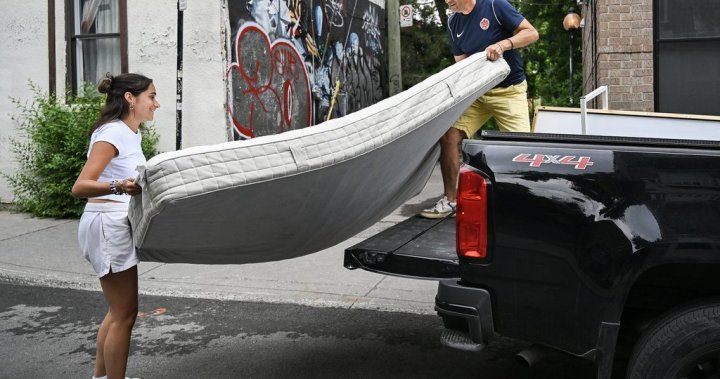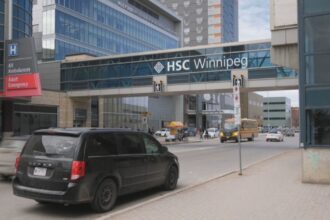As Quebec’s traditional July 1 Moving Day approaches, thousands of families across the province face an unprecedented housing crisis, with many still desperately searching for affordable homes amid skyrocketing rents and dwindling vacancy rates.
Walking through Montreal’s Plateau-Mont-Royal district, the signs of impending displacement are everywhere – moving trucks reserved months in advance, apartment listings receiving hundreds of inquiries within hours, and community centers transforming into temporary housing coordination hubs.
“I’ve never seen it this bad in my 15 years working in housing advocacy,” says Véronique Laflamme, spokesperson for the housing rights group FRAPRU. “We’re tracking over 750 households who have contacted housing assistance services because they simply cannot find affordable housing for July 1st.”
The crisis disproportionately affects vulnerable populations. Single parents, seniors on fixed incomes, and newcomers to Canada face particularly steep challenges in Quebec’s increasingly competitive rental market. In Montreal alone, the vacancy rate has plummeted to 1.3 percent – well below the 3 percent threshold considered necessary for a healthy rental market.
Housing advocates point to multiple factors fueling this crisis. Investment firms purchasing rental buildings and significantly raising rents, the conversion of long-term rentals to short-term Airbnb-style accommodations, and insufficient construction of affordable housing units have created a perfect storm.
“What we’re seeing is the culmination of years of policy failures,” explains Jean-Claude Icart, an urban planning researcher at Université de Montréal. “When nearly 40 percent of Montreal renters are already spending over 30 percent of their income on housing, even modest rent increases can push families into precarious situations.”
The Quebec government has implemented emergency measures, including temporary housing subsidies and the extension of lease terms for those unable to find new accommodations. However, critics argue these are merely band-aid solutions to a structural problem requiring comprehensive reform.
Montreal Mayor Valérie Plante has called the situation “deeply concerning” and announced expanded emergency housing services. “No Montrealer should find themselves without a roof over their head because of this crisis,” Plante stated at a recent press conference.
For 34-year-old Christine Dupuis, a single mother of two who works as a healthcare assistant, the crisis has become all too real. “My landlord sold the building, and the new owners are raising my rent by 28 percent. I’ve applied to over 40 apartments in the last two months and haven’t secured anything within my budget,” she explains. “I’m terrified about where we’ll be living come July 2nd.”
Community organizations across Quebec have mobilized to assist those in need. The Red Cross has prepared emergency shelter spaces, and tenant rights groups are running hotlines to provide legal advice to renters facing unlawful evictions or excessive rent increases.
While Montreal remains the epicenter of the crisis, smaller cities like Quebec City, Sherbrooke, and Gatineau are reporting similar housing shortages. As more rural residents relocate to urban centers for employment opportunities, the pressure on already strained housing markets continues to intensify.
Housing analysts note that Quebec’s unique Moving Day tradition – dating back to colonial times when the government standardized lease end dates – amplifies the crisis by concentrating housing transitions into a single period. This creates bottlenecks in moving services and heightens competition for available units.
As July 1 approaches, the question remains: will Quebec’s housing policy evolve beyond emergency responses to address the fundamental imbalances in its rental market? For thousands of families currently packing boxes without knowing where they’ll unpack them, the answer cannot come soon enough.























